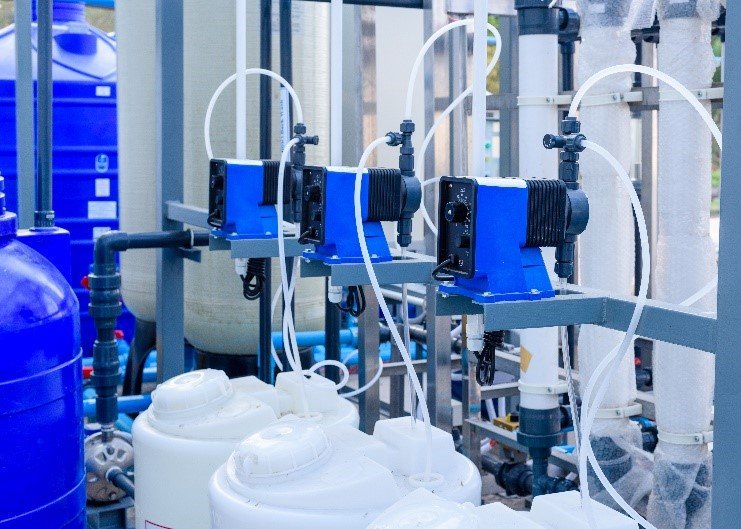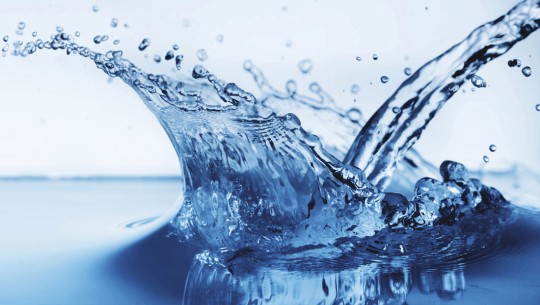Checking Out Water Technology Startups: Exactly How They Reinvent Sustainable Solutions
Water Technology startups are becoming crucial players in the quest for sustainable services to worldwide water issues. These companies leverage innovative modern technologies to boost water performance and administration. Their contributions deal with pressing obstacles such as deficiency and contamination. Nonetheless, in spite of their capacity, they face numerous challenges that might impact their success. Understanding these characteristics clarifies the future of water sustainability and the duty these startups might play in shaping it.
The Importance of Water Technology in Today's World
As international water shortage magnifies, the importance of water Technology becomes significantly obvious. Water Technology plays a critical function in resolving the difficulties postured by decreasing fresh water sources and enhancing need. It encompasses a wide variety of developments, consisting of innovative filtration systems, wastewater treatment modern technologies, and smart irrigation options. These advancements not only improve the performance of water usage but likewise advertise lasting practices across different markets, consisting of agriculture, industry, and metropolitan growth.
Moreover, the relevance of water Technology expands beyond resource management. It cultivates strength versus environment change impacts, such as droughts and floods, by providing adaptive solutions for water conservation and management. Additionally, it supports public health by ensuring access to secure and tidy alcohol consumption water. As the globe deals with expanding water-related difficulties, the combination of innovative water innovations is vital for promoting sustainable development and securing water schedule for future generations.
Cutting-edge Solutions From Water Technology Startups
While standard methods to water management have actually served their purpose, a brand-new wave of water technology startups is transforming the industry with cutting-edge options (Water Technology Startups). These business leverage sophisticated modern technologies to attend to pressing water concerns, such as shortage, contamination, and inefficient circulation. Lots of startups make use of expert system and machine understanding to enhance water usage and anticipate demand, causing more lasting methods
Additionally, numerous firms concentrate on establishing advanced filtering systems that remove toxins and make water safe for intake. Others explore decentralized water therapy technologies, permitting communities to handle their water resources a lot more effectively. Some startups are pioneering wise watering services that lessen water waste in farming, advertising ecological preservation.
Instance Researches: Effective Water Technology Startups
Many water Technology startups have become leaders in dealing with global water difficulties through ingenious strategies. One notable instance is Xylem, which focuses on water analytics and wise facilities to maximize water use and minimize waste. Their remedies have actually been implemented in various towns, demonstrating considerable enhancements in water administration effectiveness.
One more successful startup, No Mass Water, has developed solar-powered hydropanels that extract water vapor from the air, offering sustainable drinking water in arid areas. Water Technology Startups. This Technology has actually been deployed in numerous nations, ensuring areas have access to tidy water
Lastly, AquaVenture Holdings runs a varied profile of water-as-a-service services, dealing with water scarcity through desalination and wastewater therapy. Their projects have actually verified necessary in regions facing extreme water scarcities, showcasing the capacity of innovative water modern technologies to develop enduring, positive influences. These instance research studies highlight the transformative potential of start-ups in the water Technology industry.
The Role of Smart Technology in Water Monitoring
Smart Technology plays a necessary function in modern water administration by leveraging IoT applications to optimize source usage. Information analytics improves efficiency by supplying actionable understandings, while remote monitoring remedies allow real-time oversight of water supply. Together, these innovations change how water is handled, promoting sustainability and functional performance.
IoT Applications in Water
As water shortage and monitoring difficulties intensify internationally, the integration of Web of Things (IoT) applications has actually become a critical remedy in optimizing water sources. IoT Technology facilitates real-time tracking and evaluation of water supply, allowing extra efficient usage and monitoring. Sensors deployed in different water frameworks can track quality, flow prices, and leak, providing important information to stakeholders. This information empowers utilities and consumers to make enlightened decisions, decreasing waste and enhancing preservation initiatives. Additionally, smart irrigation systems use IoT to maximize water distribution for farming, making certain that crops receive the best amount of water at the correct time. On the whole, IoT applications are changing traditional water management practices, fostering sustainability and durability in water resource systems.
Data Analytics for Efficiency
Utilizing data analytics is necessary for boosting performance in water monitoring. Water Technology start-ups are significantly making use of innovative analytics to maximize source allowance and minimize waste. By examining data from different sources, these startups can identify patterns and fads that educate far better decision-making. Predictive analytics can anticipate water need, enabling utilities to readjust supply appropriately, thus minimizing shortages and excess. In addition, real-time data processing makes it possible for the instant detection of leakages and ineffectiveness within distribution systems, substantially lowering operational costs. In addition, data-driven insights encourage stakeholders to carry out targeted conservation approaches, promoting sustainable techniques. Basically, integrating information analytics into water management not only streamlines procedures but likewise advertises long-lasting sustainability in water source usage.
Remote Surveillance Solutions
While conventional water monitoring systems typically fight with ineffectiveness, remote surveillance services are changing how water resources are taken care of. These innovative innovations enable real-time data collection and evaluation, permitting stakeholders to keep track of water top quality, circulation rates, and usage patterns from afar. Making use of sensors and IoT devices, remote tracking gives immediate insights that assist in proactive decision-making. This shift not only improves functional efficiency but likewise advertises sustainability by lowering water waste and maximizing source allocation. Additionally, remote tracking systems can determine possible concerns before they escalate, thus lessening the threat of contamination or framework failure. As water Technology startups continue to develop these services, the market is poised for considerable improvements in lasting water monitoring techniques.
Obstacles Encountering Water Technology Startups
Water Technology startups encounter significant challenges that can hinder their growth and success. Key issues consist of safeguarding ample financing, steering via intricate regulative atmospheres, and contending in a congested marketplace. These obstacles require strategic preparation and technology to get over.
Financing and Financial Investment Obstacles
Development in water Technology holds immense possibility for attending to global obstacles, start-ups in this industry often encounter considerable financing and investment hurdles. Many financiers stay careful, perceiving the water industry as high-risk because of its intricate governing landscape and long growth timelines. Additionally, start-ups usually battle to demonstrate prompt earnings, which can discourage possible backers. Standard venture resources might overlook water modern technology, favoring fields with quicker returns, such as technology or durable goods. Safeguarding grants and federal government financing click resources can be competitive and lengthy, further complicating financial security. As a result, lots of innovative water Technology startups discover themselves in a perilous position, needing imaginative funding approaches to navigate these monetary obstacles and attain their goals
Regulatory Compliance Issues
Guiding regulative conformity is a significant difficulty for startups in the water Technology sector, as they have to face a myriad of neighborhood, national, and worldwide regulations. These guidelines commonly encompass water high quality requirements, ecological protection regulations, and security procedures, which can vary commonly across jurisdictions. Start-ups might discover it challenging to browse this facility landscape, especially when scaling procedures or entering brand-new markets. The costs connected with conformity can be considerable, drawing away resources far from advancement and item advancement. Furthermore, hold-ups in getting necessary permits or qualifications can hinder growth and market entrance. Consequently, a robust understanding of regulative structures is vital for these startups to guarantee lasting operations and avoid potential legal repercussions.
Market Competitors Dynamics
As water Technology startups arise in a competitive landscape, they deal with numerous obstacles that can impede their growth and innovation. Developed business commonly control the marketplace, leveraging resources and experience to keep their placements. Startups struggle with minimal financing, which restricts research and advancement capacities, making it hard to compete on Technology and prices. Additionally, the swiftly progressing nature of water technologies needs continuous adjustment, further straining startup resources. Governing obstacles can complicate market access, as conformity with environmental requirements is vital yet expensive. Bring in experienced skill in a niche field provides one more challenge, as bigger companies might use even more appealing employment packages. Subsequently, these aspects create an intricate environment for water Technology start-ups aiming to succeed.

The Future of Water Technology and Sustainability

The future of water Technology will likely concentrate on incorporating expert system and information analytics to maximize water circulation and use patterns. By taking advantage of real-time information, firms can forecast scarcities and handle resources better. Lasting practices will certainly end up being a foundation of the sector, motivating round economies where water is reused and treated. Inevitably, the ongoing advancement of water Technology will be essential in creating resilient facilities Resources efficient in fulfilling the difficulties posed by environment change and population growth while advertising environmental stewardship.
Regularly Asked Inquiries
What Are the Secret Metrics for Assessing Water Technology Startups?
Secret metrics for reviewing water Technology startups include market possibility, scalability, customer procurement costs, profits development, technology advancement, governing conformity, ecological impact, competitive benefit, and group know-how, all critical for determining long-term stability and success.
Exactly How Can People Assistance Water Technology Innovations?
People can support water Technology innovations by buying startups, supporting for policy changes, joining neighborhood initiatives, sharing knowledge about lasting techniques, and advertising awareness of water concerns with social media and local occasions.
What Are Common Funding Resources for Water Technology Startups?
Typical financing sources for water tech startups include equity capital, federal government gives, crowdfunding systems, angel capitalists, and corporate partnerships. These monetary avenues help facilitate advancement and development in sustainable water administration innovations.

Which Industries Benefit Most From Water Technology Advancements?
Industries such as farming, energy, production, and local solutions benefit substantially from water Technology improvements. These developments boost water effectiveness, lower prices, and advertise sustainable techniques, eventually contributing to environmental conservation and source management.
Are There Any Regulatory Challenges Specific to Water Modern Technology?
Yes, water her explanation Technology encounters regulatory challenges, consisting of compliance with environmental standards, allowing processes, and varying regional policies. These complexities can hinder technology and slow down the execution of new technologies in the water management sector.
Water Technology startups are emerging as critical players in the mission for lasting solutions to international water concerns. As global water shortage magnifies, the importance of water Technology ends up being increasingly obvious. Others check out decentralized water treatment innovations, permitting areas to handle their water sources more successfully. One more successful start-up, Zero Mass Water, has actually established solar-powered hydropanels that extract water vapor from the air, supplying sustainable alcohol consumption water in arid areas. Their jobs have actually verified vital in areas dealing with severe water shortages, showcasing the possibility of cutting-edge water technologies to develop enduring, favorable influences.